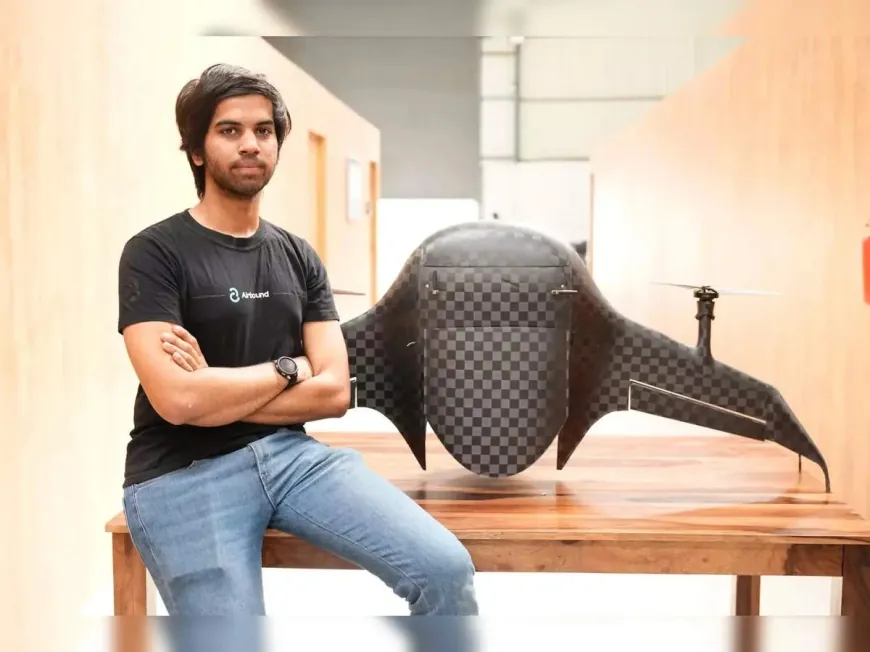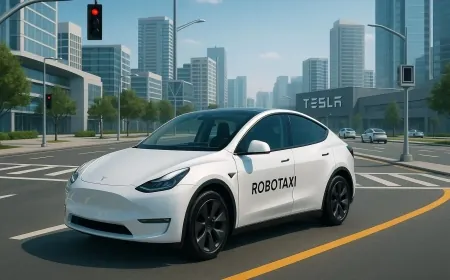Indian Drone Startup Airbound Raises $8.65M for One-Cent Delivery
Indian drone startup Airbound raises $8.65M to pilot rocket-style drones, targeting ultra-low-cost one-cent parcel deliveries.

Bengaluru-based Airbound has secured $8.65 million in seed funding as it develops rocket-style drones capable of ultra-low-cost deliveries, including a pilot program with a private hospital. The round was led by Lachy Groom, co-founder of Physical Intelligence, with participation from Humba Ventures, Lightspeed Venture Partners, and executives from Tesla, SpaceX, and Anduril.
Founded in 2020 by Naman Pushp, who was 15 at the time, Airbound is designing a drone called the TRT that uses a vertical “tail-sitter” launch system and a blended-wing-body frame made of carbon fiber. Unlike conventional quadcopters, this design allows the drone to take off like a rocket and fly efficiently like a fixed-wing aircraft, significantly reducing energy use.
Airbound Targets Ultra-Low-Cost Drone Deliveries
Airbound aims to cut delivery costs to as low as one cent per parcel, a sharp reduction compared with conventional electric two-wheeler deliveries in India. Most delivery bikes weigh around 150 kilograms while carrying payloads under 3 kilograms, consuming roughly $0.02 per kilometer in energy.
The startup’s TRT drone weighs just 3.3 pounds and can carry up to 2.2 pounds, reducing total transport weight by approximately 30 times. This lower weight and its aerodynamic design significantly improve energy efficiency.
“Traditional drones and vehicles carry far more weight than needed for their payloads,” said CEO Naman Pushp. “We designed our drones to maximize lift and minimize energy per delivery.”
Airbound’s second-generation drone is expected to carry up to 6.6 pounds while weighing only 2.6 pounds. A prototype is planned for mid-2026, with full production targeted for early 2027.
Drone Design and Battery Efficiency
Airbound’s drones use a blended-wing-body design that removes unnecessary propellers, increasing lift and reducing the energy needed for flight. The aircraft runs on lithium-ion batteries, which last between 500 and 800 cycles, compared with 100–200 cycles for typical lithium-polymer batteries, lowering long-term operating costs.
Each drone currently costs about $2,000 to manufacture, with per-delivery energy costs around $0.27. The startup plans to reduce delivery costs to under $0.05 per parcel by the end of 2026.
Pilot Program and Production Expansion
Airbound has started a three-month pilot with Narayana Health in Bengaluru, delivering medical samples, blood tests, and other critical items at roughly ten deliveries per day. The startup plans to expand the drone service to quick commerce, food, and last-mile deliveries in urban areas.
Production is set to scale from one drone per day at its Bengaluru facility to over 100 drones daily, targeting 1 million deliveries per day by mid-2027. The company is also working with India’s Directorate General of Civil Aviation to secure regulatory approval for wider operations, including commercial deliveries across multiple sectors.
Funding and Team Expansion
Airbound has raised more than $10 million in total funding to date and employs a 50-member team specializing in engineering, manufacturing, and logistics. The recent $8.65 million seed round will be used to scale drone production, expand pilot programs, and optimize operations in preparation for broader commercial deployment.
Also Read: Google to Build $15B AI Data Center in India’s Visakhapatnam
































































